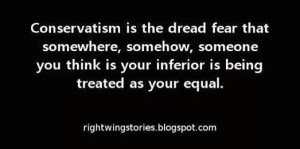In the previous post, I discussed what I had learned from Brene Brown’s book “I Thought It Was Just Me (But It Isn’t)” about the way shame can arise from failing to meet expectations.
A second major route into shame is through difficult circumstances, misfortunes, that result in pain and suffering. This happens because of others’ fear. It’s horrible, but people often instinctively want to distance themselves from anyone going through a bad, painful experience, to differentiate themselves in some way from that person, in order to have some basis for feeling “safe”. It couldn’t happen to me, because I’m not like them. This is an empathy barrier and unfortunately, depending on the form it takes, it is often tantamount to blaming the person in some way for their suffering.
Although the blaming can be subtle, and somewhat unconscious, it’s very easy for the suffering person to pick up on it – because we all intuitively know how it works. Perhaps it works reflexively as well, as we look for a reason why something happened to us and not to the person next door – the random nature of misfortune is just one of those difficult things to accept about life. Of course, the result is shame. The route out of shame is again through empathic connection, perhaps most easily established with others who have gone through a similar experience.
This got me thinking about the role fear plays in establishing belief systems or ideologies, and how they feed into shame. It seems to me that we often wrap ourselves in protective ideologies to avoid feeling that vulnerability to suffering. To some people, perhaps adhering to a strict moral code or religious lifestyle is the answer to keeping chaos at bay. The problem with this is not only that it’s a somewhat illusory safety but that it encourages the person to judge and blame others who haven’t seen the sense to get on that “right path”, when suffering befalls them.
In political conservatism there is a defining belief that anyone can “make it” if they simply work hard. Arguably, this embodies a desire to disconnect, to differentiate between self and other, in order to avoid concluding that pain and misfortune (such as poverty) could happen to anyone. A difficulty of the very privileged to empathise with the struggles of the less privileged is relatively straightforward to understand, but what about about less affluent people who appear to embrace this belief and vote against their own class interests? I guess what I’m seeing now is that, for people who’ve struggled a bit and had nothing handed to them on a plate, and who have internalised an individualistic analysis of that (i.e. experienced shame) and embraced a Protestant work ethic as the solution, it is also an idea that readily fits – and, of course, readily lends itself to judgement of others further down the socioeconomic ladder.
(I came across this relevant meme on social media recently:
I have found this very interesting to think about because while I have always been a left-leaning voter (probably largely due to my culture and family), I am by no means immune to these sorts of psychological mechanisms – I don’t think anyone can be. I find it easy and natural to be against the concentration of wealth and power that results from neoliberal policies, but does that mean I really, truly, empathise with the plight of my former neighbours on benefits who kept me awake at night with their yelling and their chaotic lives and police visits? Or with former classmates who had kids that are fed and clothed courtesy of tax credits and benefits while I have scrimped and saved for my deposit, flat-sharing like an overgrown student well into adulthood, not getting a driving licence until age 30, reaching my mid-thirties before I feel I can even think about having one child? That is a bit more challenging, if I’m really honest. And until now I hadn’t recognised the role of my own shame in this.
Feminism is the most recent example of an ideology that I have used to feel less vulnerable. Embracing some of the ideas of liberal feminism initially helped me make sense of some of my own struggles (particularly in the workplace), relieving some shame for me, but I did note in a recent post that I had found it difficult to be moderate in my views. I have partially taken feminism as a mandate for us all to “wise up” to the limitations of traditional gender norms, thereby making gender equality a matter of personal responsibility, to some extent – and yet another thing that one can “fail” at. Which is pretty humbling to realise.
I suppose all this leads to a question around how far empathy can or should go, and where individual responsibility actually does kick in. I don’t have an answer but I’m sure it’s a question I will be pondering.



Hmmm, as one who has been a conservative-leaning voter due largely to culture and family, I am not sure I would have put my “dread fear” into those terms (the meme.)
Pingback: Lean In vs Lean Out, and thoughts on diversity | Meaning and Truth
Pingback: An update on my “journey” | Meaning and Truth